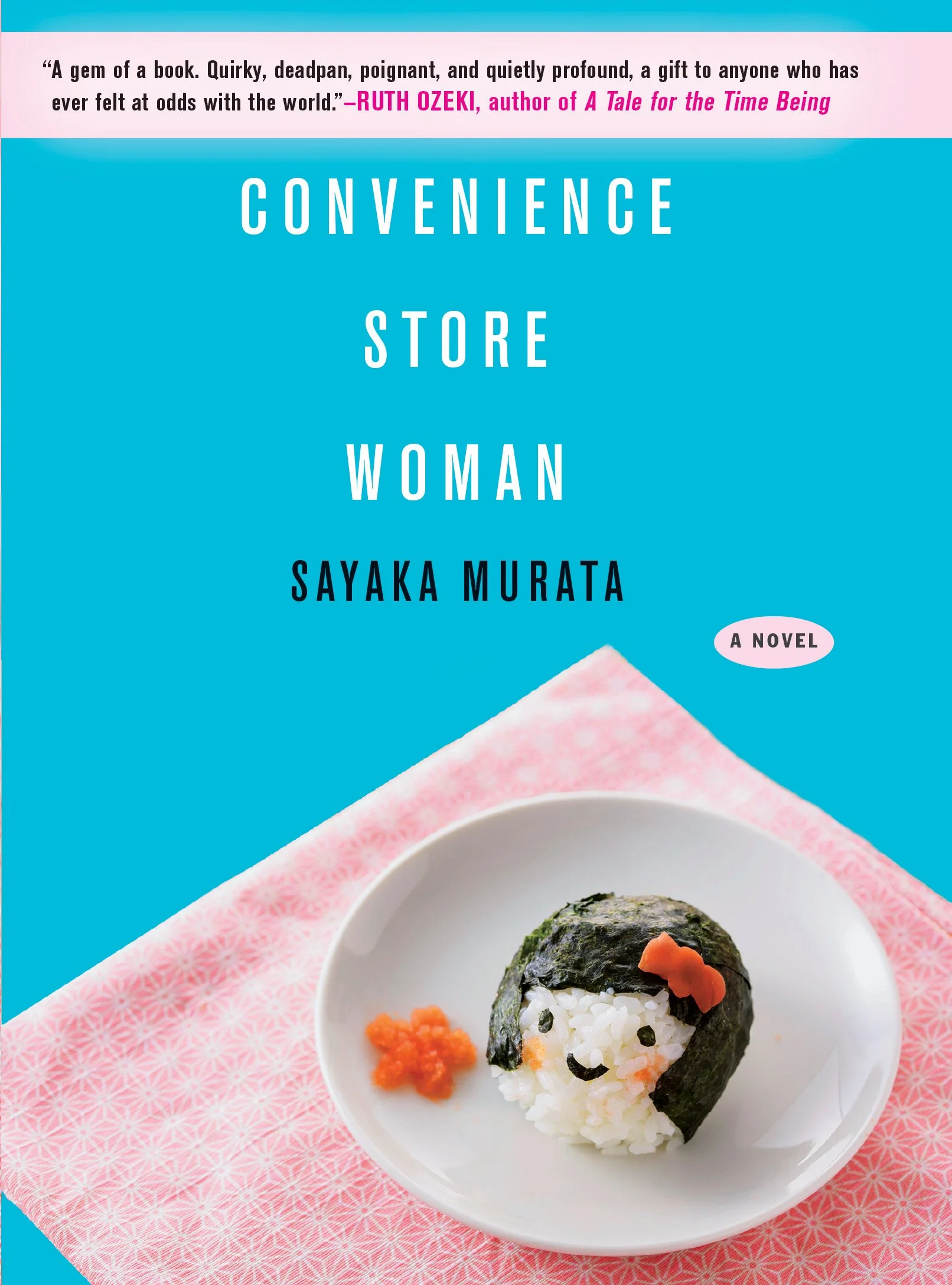“Convenience Store Woman”, Sayaka Murata
コンビニ人間 • Originally Published in Japanese on July 27, 2016
Keiko Furukura has never fit in, neither in her family, nor in school, but when at the age of eighteen she begins working at the Hiiromachi branch of “Smile Mart,” she finds peace and purpose in her life. In the store, unlike anywhere else, she understands the rules of social interaction―many are laid out line by line in the store’s manual―and she does her best to copy the dress, mannerisms, and speech of her colleagues, playing the part of a “normal” person excellently, more or less. Keiko is very happy, but the people close to her, from her family to her coworkers, increasingly pressure her to find a husband, and to start a proper career, prompting her to take desperate action…
“This society hasn’t changed one bit. People who don’t fit into the village are expelled: men who don’t hunt, women who don’t give birth to children. For all we talk about modern society and individualism, anyone who doesn’t try to fit in can expect to be meddled with, coerced, and ultimately banished from the village.”
This book may be short, but it says more in under 200 pages (or 3 hours on audiobook) than some novels manage in 500. This isn’t my first Murata book, so I am familiar with the eccentric charm that defines her work.
Convenience Store Woman shares a sharp and poignant look at what it means to “fit in” and whether that’s even something worth aspiring to. Keiko, the titular konbini woman, might be considered a weirdo by everyone around her, but there’s a certain pragmatic brilliance in how she approaches life. She understands her place in the world, even if that place confuses or unsettles others. She finds comfort in the routines and rules of the store, and doesn’t seem to want for anything else.
Her decision to get involved with a former coworker Shiraha is one of the most fascinating aspects of the book. She sees him for exactly what he is—problematic in an Andrew Tate kind of way, self-absorbed despite his mediocrity, and a walking embodiment of outdated societal complaints—but chooses to keep him around for her own strategic purposes. It’s a choice that says a lot about her worldview: she doesn’t care about romance (could she be ace?), approval, or normalcy unless it directly serves her own survival and stability. She even copies the way her coworkers dress, the inflection of their voices, and the words they use to fit in.
Murata delivers all of this with a deceptively simple style, creating a story that’s both unsettling and oddly relatable. Whether that’s just her writing or translation from Japanese, it’s always an experience reading anything of hers.
Content Warnings
Note: This is not an exhaustive list of content and trigger warnings.
misogyny • sexism • ableism • toxic relationships
Goodreads | Storygraph | Bookshop (support your local bookstore)

